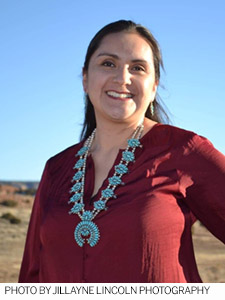What steps can you take now to reach that next professional level?
Whether you’re just starting out or are several years into your professional life, the beginning of a new year is always a good time to think about planning your next move. According to CareerBuilder, about 75 percent of Americans have changed careers at least once, and 33 percent are thinking about it right now. So if you’re contemplating a career makeover in 2019, you’re in good company.
First, you need to commit. A new or different career won’t just fall into your lap. The onus is on you to actively work toward improving your prospects. Your goals may be as small as finding one new person to network with or as large as landing a job in an entirely different field. Regardless, you need to actively engage in making the change happen.
Once you’ve committed to making a change, the next step is figuring out what that change should be. Make a plan for yourself that will help you establish a new career path. Take large goals and break them into smaller ones so that you don’t get overwhelmed, and enjoy the sense of accomplishment as you reach each milestone. Make sure your goals are detailed and clear. For example, saying you need to update your resume is not as specific as saying you need to add your latest job. The unambiguous second goal is easier to complete. A clear goal for your career simplifies the process of developing a clear course.
Track your progress, and don’t beat yourself up if you aren’t making as much headway as you’d like. Having deadlines for your goals is great, but cut yourself some slack if you aren’t always able to meet them. Your goals may be delayed, but as long as you continue to pursue them, your chosen career path will never be too far out of reach.
Track your inner animal. This may sound strange, but according to sociologist and life coach Martha Beck, this is the best way to figure out what career path you should pursue. “Grab a pen and make a list of every time you remember being utterly, happily absorbed in an activity, no matter how odd,” says Beck. “This focused attention is the hot track you're looking for, evidence that your animal self was here.” By focusing on what your animal self loves, and not what your rational brain says you should be doing, you can find a path that will lead to a career you truly enjoy.
Remind yourself that you don’t need to go at it alone. In fact, you’ll be much more successful if you have the support of a mentor or colleague who can help ease the transition and make connections. That support is priceless, especially if you’re shifting careers. Mentors are able to give you guidance, advice, and insight that can be crucial to making that next move, so don’t be afraid to ask for help. A mentor may be just what you need to move forward on your chosen career path.
Whether your next career move keeps you in the same field or shifts you into a new one, keep your knowledge and skills up to date through trainings, organizational memberships, and conferences. If you’re looking to move into a field that requires a skill you don’t currently have, take the time to learn it. You may opt to do this on your own — reading up on the topic and practicing it in your free time — but you can always attend a class or try one offered online at sites like Lynda.com that offer helpful tutorials.
Most importantly, believe in yourself. Know that you have the drive and ability to accomplish your goals and to embark on a career path that you will enjoy. Careers are ever changing, so don’t be afraid to try something new. Whether this is your first career or your 10th, use the tips above to make it your best career yet!

Jessica Tsabetsaye, Zuni Pueblo, is a certified physician assistant with Presbyterian Health Services in Albuquerque, N.M. She serves the community by providing accessible care at all the Presbyterian urgent care centers while serving as the lead advanced practicing clinician for her group. A supportive wife and mother of two young boys, Tsabetsaye has been a member of AISES since she was an undergraduate at the University of New Mexico obtaining her degree in biochemistry. She became a Sequoyah Fellow in 2006 and continues to support AISES and its members. Tsabetsaye has spent time reflecting on her career and shares some insights from that experience here.
Have you conducted a career assessment? What was involved, and did it alter your outlook/professional path?
I had been practicing as a physician assistant for three years, in family practice and urgent care, when we decided to start our family. When we had our first child we learned that we needed to make some adjustments. As I was expecting my second child, I thought a lot about the demands of my full-time career and having two young children. I reflected on what I needed to do differently and how my thinking could also help improve my organization — and then developed a plan for when I returned to work after maternity leave. With this strong desire and plan to improve my work environment, I came back refreshed and full of positive energy. I understood that if I wanted change, I needed to do it more deliberately. Luckily, I was already in a managerial role, so I concentrated my efforts on ensuring that my group was moving in the right direction to provide quality care to patients, implementing better process flow for more work-life balance for providers, and creating an atmosphere with an optimistic attitude. My assessment included evaluating my role in my department and determining who would be supportive of efforts toward a positive culture change.
Did you seek advice as you took stock of where you were in your career and developed a strategy for the future?
As part of my plan, I sought out a mentor to guide me in building leadership skills and help me in navigating the organization. I chose a senior leader in my organization whom I had seen manage tough conversations empathetically and respectfully. I requested that we have monthly, one-hour meetings for one year, with the goal of discussing leadership styles. In our meetings, we reviewed current issues that I was encountering as a manager and role-played how I was going to communicate with my direct reports and colleagues. We also reviewed literature for effective communication and discussed several different models to evaluate my personal style. I was fortunate to find a mentor and an advocate who has helped me build positive and supportive relationships.
Have you taken advantage of any career-advancement resources offered by your employer?
I have attended all the classes and retreats and have been grateful for each of them. I participated in a six-month leadership program, attended a leadership retreat, and completed a relationship-centered communication class. Each reviewed my personal style and taught mindfulness and being present, along with skills needed to be an effective communicator. All the models and skills have helped me continue to refine my leadership capabilities.
Is there anything you wish you had known earlier in your career that might have guided your decision making?
From an early age I knew I wanted to have a career in medicine. Specifically, I wanted to be the person to provide a path for healing and recovery. If I had to do it all over again, I might say that I would have been more active in knowing the difference between a mentor and a champion. Additionally, I’d be more active in utilizing such a relationship to its fullest. I have always had a mentor, either in an official or an unofficial capacity. I recommend to young people that they formalize a relationship with a mentor with specific goals — and with a beginning and an end date as opposed to a never-ending open conversation. Those parameters will allow your conversations and interactions to flourish.
As for champions, you really can’t choose them — they’re there without your knowing it. The only way you “earn” a champion is if you perform exceptionally and develop a reputation for success. As a result, I’ve learned that the key to developing that reputation is finding a way to say “yes” to management requests for new assignments, and knowing when to ask for help when the challenge is greater than my capacity.
As I think about my early days, I had a number of mentors and most likely a champion at every stage of my education and career.
What tips would you give to others who may be struggling to determine the right next steps professionally?
The first step is recognizing that you want some kind of change. From there, assess your current situation and ask yourself what brings you joy when you come to work and what you would like to see changed — maybe things in your workplace that frequently frustrate you. Use that assessment to establish goals. Think of the goals as ways that change might occur and then determine who could help you accomplish those goals. This exercise may take time, but it allows for self-reflection, growth, and, ultimately, change.
Do you have any additional advice?
I would pick up some literature to help you build your skill set and accomplish your goals. Keep your passion(s) alive by reading books or listening to podcasts that relate to you and your fields of interest. Lastly, surround yourself with those who will be your cheerleaders and those who will continue to teach you to be the best you can be!














